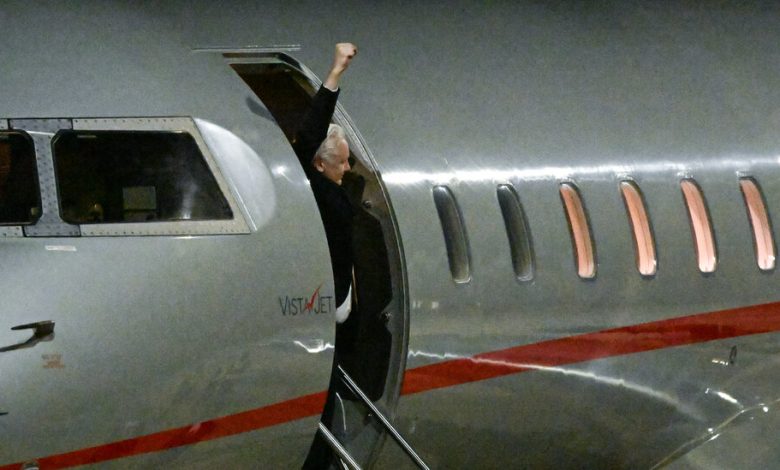From Hacker to Hunted Figure, the Polarizing Legacy of Julian Assange

In his two-decade odyssey from Australian hacker to new-age media celebrity, hunted figure, perennial prisoner and finally, a free man, Julian Assange has always been easier to caricature than characterize.
The lack of an agreed-upon label for Mr. Assange — is he a heroic crusader for truth or a reckless leaker who endangered lives? — makes any assessment of his legacy ambiguous at best.
Whatever history’s judgment of Mr. Assange, his appearance Wednesday in a courtroom on a remote Pacific island, where he pleaded guilty to a single count of violating the U.S. Espionage Act, was an appropriate coda to a story that has always seemed stranger than fiction.
From the time he established WikiLeaks in 2006, Mr. Assange, 52, was a polarizing figure, using the internet to solicit and publish government secrets. His disclosures, from confidential diplomatic cables to civilian deaths in the American wars in Afghanistan and Iraq, made him courageous to those who believed in his gospel of radical transparency. To others who feared the information he revealed could get people killed, he was destructive, even if there was never proof that it did so.
After his sensational leaks incurred the wrath of the White House, Mr. Assange spent 12 years in London fighting extradition, first to Sweden and then to the United States. Holed up in a South American embassy and later languishing in a British prison, he resurfaced in the headlines whenever a court ruled on his latest appeal. He became less a cutting-edge insurgent than a ghostly throwback to another time.
“Julian Assange has for so many years sacrificed for the freedom of speech, freedom of the press,” said Barry Pollack, a lawyer who represented Mr. Assange in his plea negotiations with the American authorities, on Wednesday in Canberra, Australia. “He’s sacrificed his own freedom.”